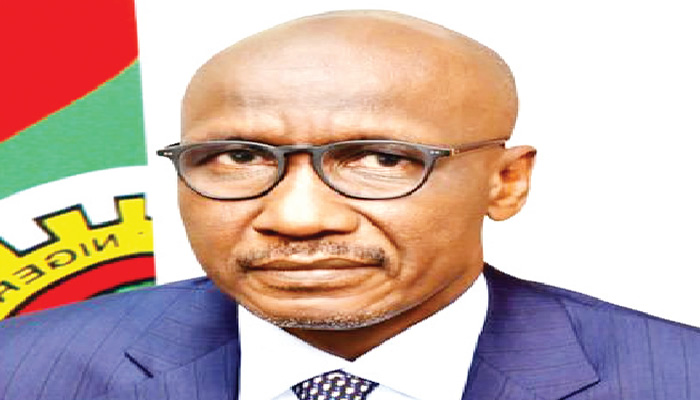
Energy analysts have stated that the Nigerian National Petroleum Company Limited can obtain loans without the Federal Government’s approval.
Responding to criticism over NNPC’s plan to secure a $20bn oil-backed loan from undisclosed sources, Professor Emeritus and oil and gas expert, Wumi Iledare, explained that NNPC operates as a private company and therefore, the government did not have the power to stop it from implementing decisions already approved by its board of directors.
Quoting the company’s Group Chief Executive Officer, Mele Kyari, Reuters had reported that the NNPC was in talks for another oil-backed loan to boost its finances and allow investment in its business.
The NNPC planned to raise at least $2bn.
Reuters claimed that the company’s debts to petrol suppliers had doubled in the last four months to hit $6bn.
Kyari confirmed that the company wanted a loan against 30,000–35,000 barrels per day of crude production but declined to say how much money it sought.
He was said to have revealed that the cash raised would be used for all of the NNPC’s business activities, including supporting production growth.
This is coming amid complaints of a lack of crude oil supply to the 650,000-capacity Dangote refinery.
In an interview with NewsNow, Iledare averred that the NNPC is like Shell or Seplat, stating that it only needs the approval of its board of directors to borrow whenever it wants to.
“NNPC is not the government. NNPC is a liability company like Shell. It is not that the government owns the 100 per cent share. I don’t know when Nigerians will realise that. NNPC can borrow money. It doesn’t need the Federal Executive Council’s approval. It is the board of directors that will approve whether they borrow money or not.
“If they can justify it to their board of directors, the government cannot say they should not borrow,” the don said.
He maintained that the NNPC did not need to tell Nigerians why it wanted to borrow, as its concern was not really about the economy, but giving returns to investors.
“We may not know why they are borrowing because they will only explain that to their directors. It is not the FEC or President who will approve it. It is not about the Nigerian economy, it is about whether the NNPC is profitable or not if they are borrowing money that they cannot pay; and whoever is lending them money without necessarily knowing how they are going to pay for it, that is the person’s problem. NNPC is a private liability company,” he added.
Similarly, a Professor of Energy at the University of Lagos, Dayo Ayoade, agreed that the NNPC was subject to its board and corporate governance.
Ayoatde told NewsNow, “NNPCL is a private company and can thus borrow, subject to its board of directors and corporate governance.”
However, a Professor of Economics at the University of Ibadan, Adeola Adenikinju, expressed worries that the NNPC wanted to borrow crude oil again, saying that was why the Dangote refinery did not get feedstock locally.
Adenikinju remarked, “We borrowed money from Afreximbank, paying back with barrels of crude oil. That is why Dangote cannot get crude. When we are pledging all these things away, then we will be left with debts that generations cannot pay. It does not make any sense to anybody what they are doing.” he said.
The Federal Government’s finances rely on the oil the NNPC exports and oil provides the bulk of crucial foreign exchange reserves.
However, pipeline theft, and years of underinvestment, have sapped oil production in recent years, and the cost of gasoline subsidies has further depleted cash reserves.
NNPC already has a $3.3bn oil-backed loan through Afreximbank, but five sources said the company’s lack of cash had been aggravated by rising fuel subsidy costs, and that the new loan would help it pay them.
Some oil trading houses have already stopped participating in NNPC’s tenders for petrol because the overdue bills have pushed their exposure to Nigeria above the levels their companies allow.
